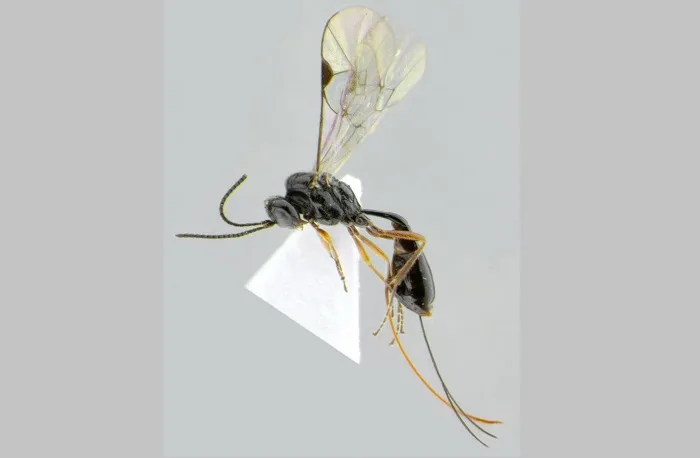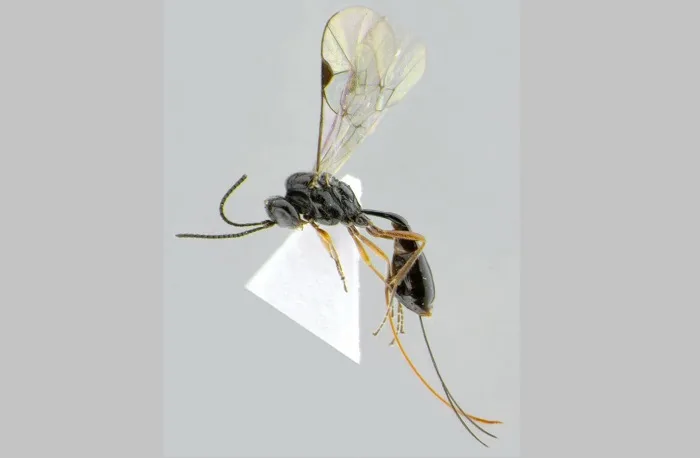
Meet the new wasp named after the pandemic
There are a lot of things 2020 will be remembered for -- face masks, wildfires, and hurricanes among them. And scientists at the Autonomous University of Tamaulipas (UAT) in Mexico have just come up with a new way to commemorate the year, by naming a newly-discovered parasitoid wasp after the pandemic that has brought much of the world to a standstill for seven months and counting.
The insect, named covida, was discovered during the 2020 global quarantine period. The research team's findings, as well as a breakdown of four other newly-discovered parasitoid wasps, have been published in the peer-reviewed journal ZooKeys.
"We thought that it was a good idea to remember this extraordinary year through the name of one remarkable species of Darwin wasp found in seven Mexican States (including Tamaulipas, where the UAT campus is located) and also Guatemala," study authors Andrey I. Khalaim and Enrique Ruíz-Cancino said in a statement.
The new species goes by the scientific name Stethantyx covida. It belongs to the large Darwin wasp family Ichneumonidae, which is comprised of more than 25,000 species worldwide.
Covida is small, measuring 3.5 mm in length. Alongside Stethantyx covida, Khalaim and Ruíz-Cancino describe four other species of Darwin wasps in their new paper, belonging to the subfamily tersilochinae, some of which are commonly seen on flowers in the spring.
"Darwin wasps are abundant and well-known almost everywhere in the world because of their beauty, gracility, and because they are used in biological control of insect pests in orchards and forests. Many Darwin wasp species attack the larvae or pupae of butterflies and moths. Yet, some species are particularly interesting, as their larvae feed on spider eggs and others, even more bizarre, develop on living spiders," the authors said in the statement.

Holotype specimen of the newly described species of parasitic Darwin wasp Stethantyx covida. Courtesy: Andrey I. Khalaim.
OTHER DISCOVERIES IN 2020
Covida and its friends aren't the only newly-discovered species to make headlines this year.
A July 2020 report by researchers at the University of Turku suggests at least 40 other previously-unknown species have been documented over the past 10 months.
"So far this year, the researchers of the Biodiversity Unit at the University of Turku have described 17 new spider species, 23 insects, one bristly millipede, and one monitor lizard," reads a statement from the university.
"The new species have been discovered from the Amazon, Europe, India, the Middle East, and the Pacific islands. In addition to the species, the researchers have also described four new genera previously unknown to science."
According to the University of Turku, an estimated 15 million species inhabit Earth but only 2 million are currently known to science.
"Discovering new species is important as it helps to protect them. Furthermore, new species can also produce compounds that could lead to the development of new medicine," The university says.






